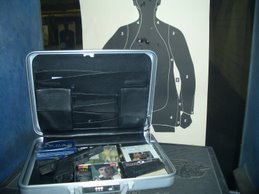Why is this? Because classical music is like the jumbo-jet business: Boeing makes great aircraft but they never make the engines. Engines are always made by GE, Rolls Royce, Pratt & Whitney or some other specialist. Opera composers never compose symphonies and symphonists never compose opera. Even Beethoven allegedly called his one opera, “Fidelio,” his stepchild, and – truth be told - it sort of is. And the Great Richard Wagner’s symphony is C is one big whoopee cushion of music.
Now purists will argue the many exceptions, such as anything before 1800 or Bizet. First, operas written before 1800 are rarely performed for a reason (except Mozart, but nothing is normal about that Salzburg boy). As for Bizet, he’s French, as is Debussy, Ravel and others who did both, but they’re French and enjoy French Exceptionalism. Just look at their foreign policy.
Back to Tchaikovsky. He tried in vain to enter the opera market, which was like Hollywood in the 19th Century, but failed because he wasn’t Jedi enough. Instead of being true to himself, he tried to emulate the operatic style of the most influential composer of his day: Richard Wager.
It was a musical train-wreck. Imagine Valkyries meet Nutcrackers. Horrific, I know. Of his ten operas, only three are listenable: “Mazeppa,” “The Queen of Spades,” and “Eugene Onegin.” It was this last one that he smashed through the superego of his generation and transcended into his own operatic rapture.
Russian literature fans who watch too much Jeopardy are already shouting: “What is a novel by Pushkin?” That’s correct for $500. In a time when German opera was looking backward to the Norse mythology and Italian and French opera were fetishizing the orient, Tchaikovsky wanted a Russian opera based on a relatively contemporary Russian author. Pushkin fits the bill, with his tale of scorned and then unrequited love ending in the utter tragedy, deep heartbreak, and death. Very Russian.
There is much to admire in “Onegin,” but it’s the “Letter Writing” scene that kicks Cossack ass. Let me back up. The story opens at a country estate somewhere outside St. Petersburg, where the teenage girls Tatyana and Olga live with their aristocratic parents. In comes Olga’s boy friend, Larina, having just arrived from The Big City, dragging along his reluctant best friend, Eugene O. Eugene is the classic disaffected youth of privilege – sort of Holden Caulfield from “Catcher in the Rye” meets a Brother Karamazov (the older one).
In a moving quartet, as only opera can do, the four simultaneously share their innermost thoughts with the audience upon meeting in the drawing room. Olga and Larina are ridiculously in love, and engage in cutesy love poetry to one another. One can just see bubble hearts emanating from their heads. Tatyana and Eugene are quite a different matter. Tatyana becomes hopelessly, madly, and irrevocably in love with Eugene. Eugene, however, thinks she’s an utter country bumpkin, and in fact thinks anyone who doesn’t live in the city is hopelessly, madly, and irrevocably uncool.
That night, as the boys return to St. Pete, Tatyana takes it upon herself to bear her love and soul to Eugene in a tender letter, which she spends all night writing and re-writing. After many false starts and much hand-wringing, she finally hits her stride, which Tchaikovsky let’s you know by shifting the shiftless music to one of aching panache, announced by soft French horns. If only blogging had an orchestral accompaniment!
Listen to Tatyana's famous "Letter Writing Scene," in an incandescent performance by Inessa Galante:
Her nursemaid discovers her at sunrise (which Tchaikovsky does a great job of portraying musically)...
...slumped over her writing desk, spent. The nursemaid posts the letter, Onegin arrives soon after, and…well…you know the rest. It’s not a ‘happy ever after’ story. But it will have you crying into your vodka before the opera is over.
There is a paucity of good recordings of this fabulous opera, which is unaccountably, except that Russian is a hard language to learn for singers. There is one good recording, one “off the beaten path” recording, and hopefully one great recording.
If you were to go out to the CD store today (if you could find one), I would recommend the recording directed by the under-appreciated, Russian-born Semyon Bychkov, leading the Orchestra of Paris. It stars THE Russian tenor of our time, Dmitri Hvorostovsky, singing the lead, and the surprising Sicilian-born Nuccia Focile as Tatyana. She does an admirable job of sounding both powerful yet girlish. It’s a hard balance to strike, as the part requires a mature voice but can’t sound like a misplaced Valkrie. It’s a two disc opera on the Philips label (ASIN: B000004162).

The next set, for those armed with intrepid ears, epitomizes the term “Great Recording." It is the pre-war Bolshoi Opera recording conducted by both Aleksandr Orlov and Alexander Melik-Pashaev (they did different acts for some reason). Yelena Kruglikova, plays a highly sensitive and vulnerable Tatyana (with much better Russian than her Sicilian competition), and Panteleimon Nortzov a romantically dark Onegin.
Should you go on an Onegin Spree (as sometimes happens to me) you will discover a subtle universe of differences between ‘modern’ opera practices and pre-war practices. This is not the time to map this beautiful jungle, but I personally am much more moved with this older recording over anything done recently. Opera is not like cars: newer is not always better.
We can thank one of my favorite labels, Naxos, and their Wizard of Oz sound engineer, Ward Marston, for resurrecting this legendary 1937 recording off of 78rpm discs. Note to the faint of heart: despite Marston's amazing ability to perform musical CPR on this recording, the sound quality is, well, old. 70 years old. It will sound thin and tin-like, as if you are listening to this opera through two metal cans strung together with twine and connected to an AM radio. (ASIN: B00007DWLN)

Lastly, for those who really just want a superb performance of the "Letter Writing Scene," along with a hit parade of other Tchaikovsky opera gems, look no further than the "Tchaikovsky Experience," featuring Inessa Galante and conducted by Neeme Järvi and the Royal Opera House, at Covent Gardens.

Ok, drum roll please…
What keeps me up at night these days (other than the lamentable state of the world)? MISSING TONIGHT'S METROPOLITAN OPERA PRODUCTION OF ONEGIN! Why? Valery Gergiev • • Renée Fleming • • Ramón Vargas • • Dmitri Hvorostovsky • • the Met Orchestra. It’s the dream cast that Onegin zealots like moi have been waiting for. You think I am alone in this madness? Au contraire, mon frere! The three only performances sold out almost immediately (why just three??!). Could I have nabbed a ticket today (and wasn’t an impecunious blogger), I would be blogging from the DC-NYC Accela right now. The opera is that good. As a service to humanity, the Met MUST record it for posterity. Meanwhile, the Musical Merc will conduct Onegin recons to scout out bootleg recordings of this performance...






No comments:
Post a Comment